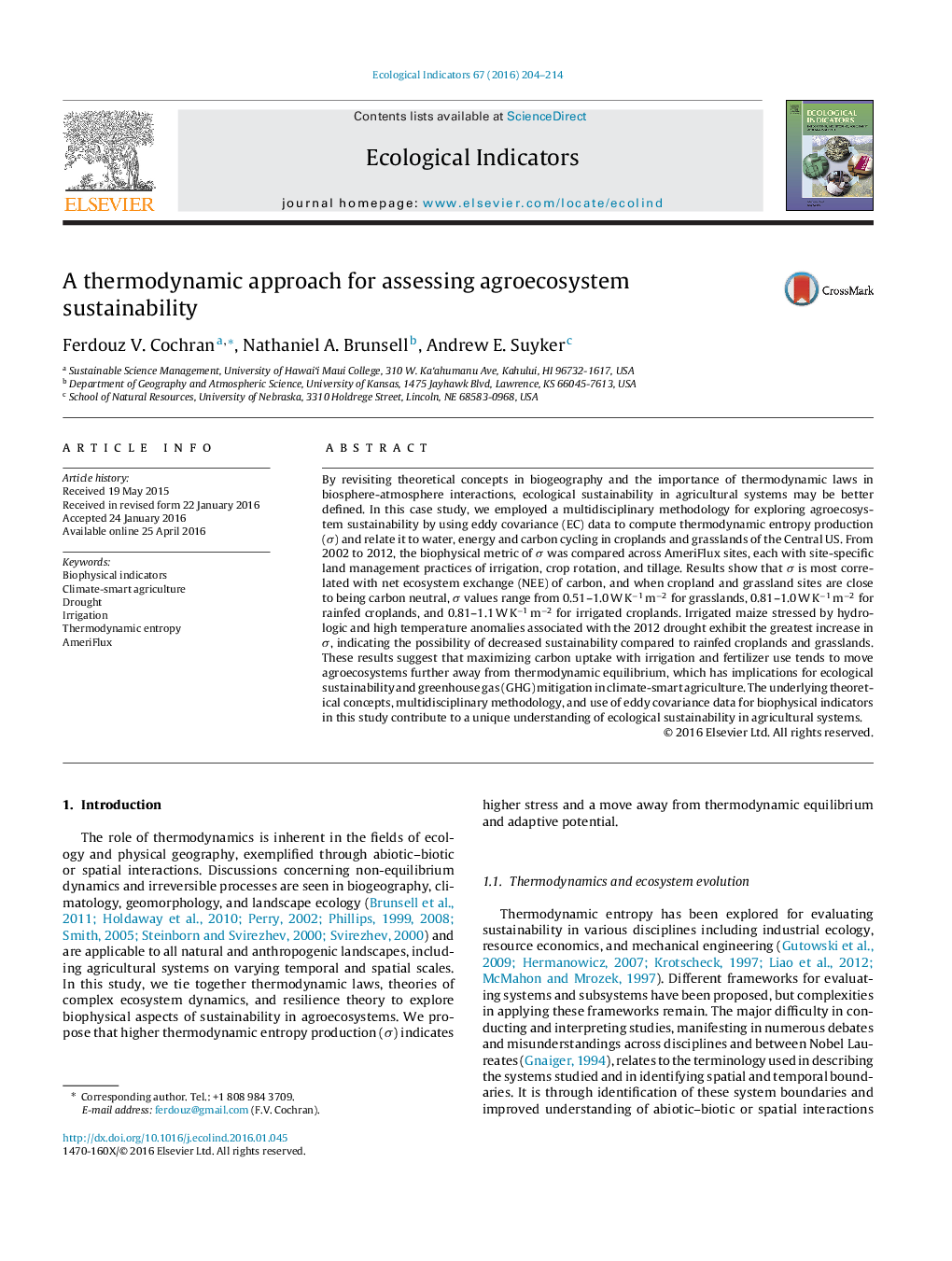| کد مقاله | کد نشریه | سال انتشار | مقاله انگلیسی | نسخه تمام متن |
|---|---|---|---|---|
| 4372868 | 1617135 | 2016 | 11 صفحه PDF | دانلود رایگان |
• A thermodynamic metric for assessing agroecosystem sustainability is proposed.
• Eddy covariance data is used to compute thermodynamic entropy production.
• Entropy production is compared to water, energy and carbon cycling in croplands.
• Entropy production is most correlated with net ecosystem exchange of carbon.
• Irrigated maize in the 2012 drought exhibited increased entropy production.
By revisiting theoretical concepts in biogeography and the importance of thermodynamic laws in biosphere-atmosphere interactions, ecological sustainability in agricultural systems may be better defined. In this case study, we employed a multidisciplinary methodology for exploring agroecosystem sustainability by using eddy covariance (EC) data to compute thermodynamic entropy production (σ) and relate it to water, energy and carbon cycling in croplands and grasslands of the Central US. From 2002 to 2012, the biophysical metric of σ was compared across AmeriFlux sites, each with site-specific land management practices of irrigation, crop rotation, and tillage. Results show that σ is most correlated with net ecosystem exchange (NEE) of carbon, and when cropland and grassland sites are close to being carbon neutral, σ values range from 0.51–1.0 W K−1 m−2 for grasslands, 0.81–1.0 W K−1 m−2 for rainfed croplands, and 0.81–1.1 W K−1 m−2 for irrigated croplands. Irrigated maize stressed by hydrologic and high temperature anomalies associated with the 2012 drought exhibit the greatest increase in σ, indicating the possibility of decreased sustainability compared to rainfed croplands and grasslands. These results suggest that maximizing carbon uptake with irrigation and fertilizer use tends to move agroecosystems further away from thermodynamic equilibrium, which has implications for ecological sustainability and greenhouse gas (GHG) mitigation in climate-smart agriculture. The underlying theoretical concepts, multidisciplinary methodology, and use of eddy covariance data for biophysical indicators in this study contribute to a unique understanding of ecological sustainability in agricultural systems.
Journal: Ecological Indicators - Volume 67, August 2016, Pages 204–214
